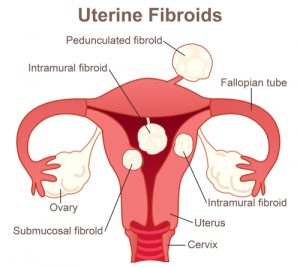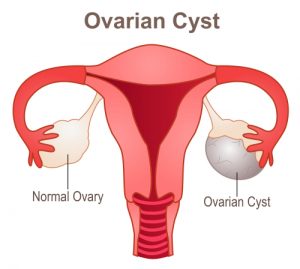- Most women with fibroids and cysts have no problems getting pregnant.
- However, depending on the size and location, uterine fibroids may affect one’s fertility. For example, fibroids that form in the womb lining may block the fallopian tubes, keeping the egg from being fertilized by a sperm cell, or make the womb environment less conducive for a fertilized egg to attach to the womb for further development.
- Fibroid developing during pregnancy may increase the risk of early delivery. “In some cases, it can cause severe pain when fibroids outgrow their blood supply. If the fibroid is large, it can cause the baby to be positioned wrongly, such as the baby’s head not turning down even at term,” explains Dr Farah.
- Ovarian cysts forming during pregnancy is usually not a cause of concern, except when the cyst grows so big that it ruptures open.
DR FARAH’S ADVICE
- Go for regular gynaecology check-up to detect the growths of uterine fibroids and ovarian cysts as well as to ensure that the rest of the reproductive system is in good condition and working order.
- When you’re about to embark on your pregnancy journey, seek advice from your doctor if you have a history of uterine fibroids and/or ovarian cysts.
- We still don’t have any evidence-based method to prevent the formation of uterine cysts or ovarian fibroids. However, practicing good health and maintaining a well-balanced diet will be good for your overall well-being and improve your chances of a safe and successful pregnancy.
|
 DR WONG YEN SHI
DR WONG YEN SHI DR FARAH LEONG RAHMAN
DR FARAH LEONG RAHMAN


